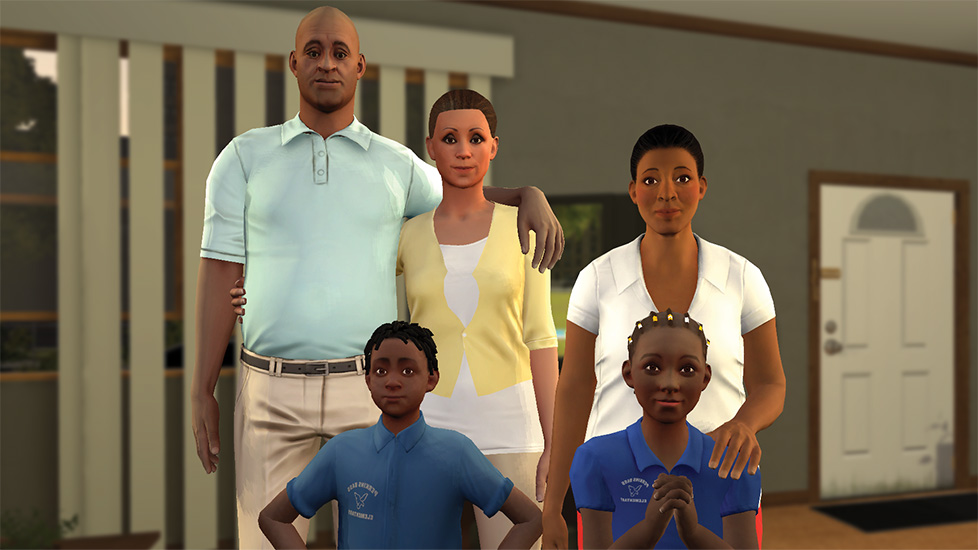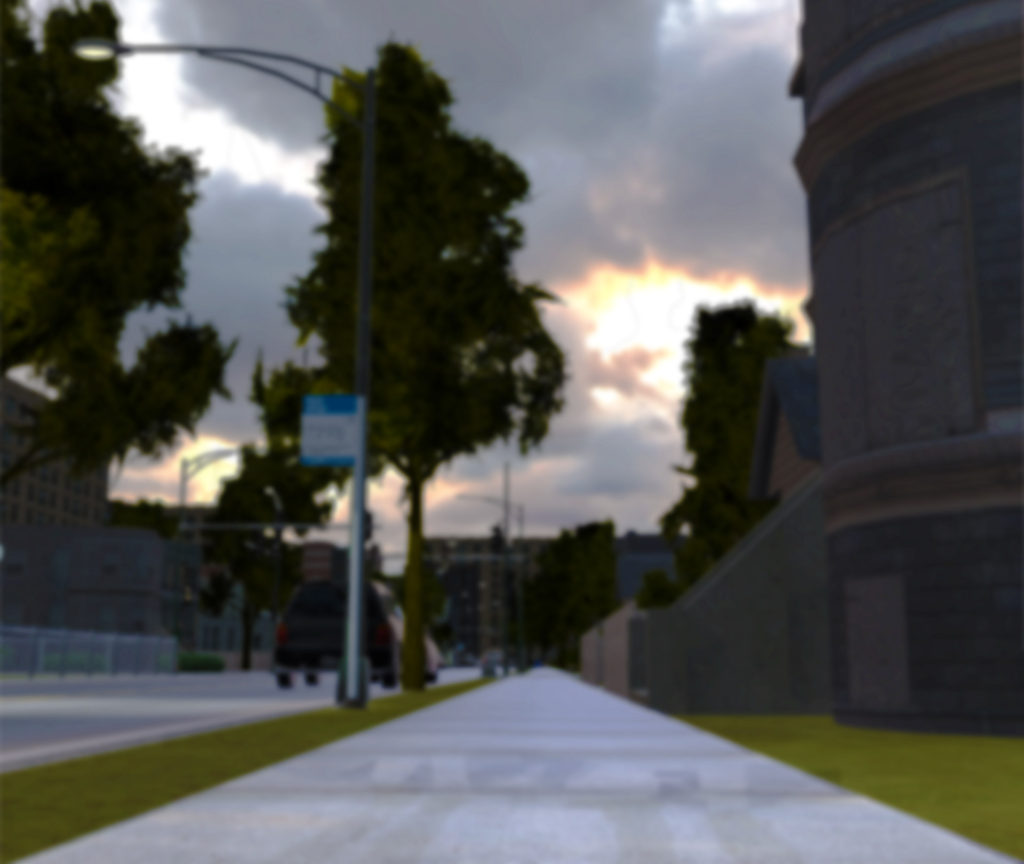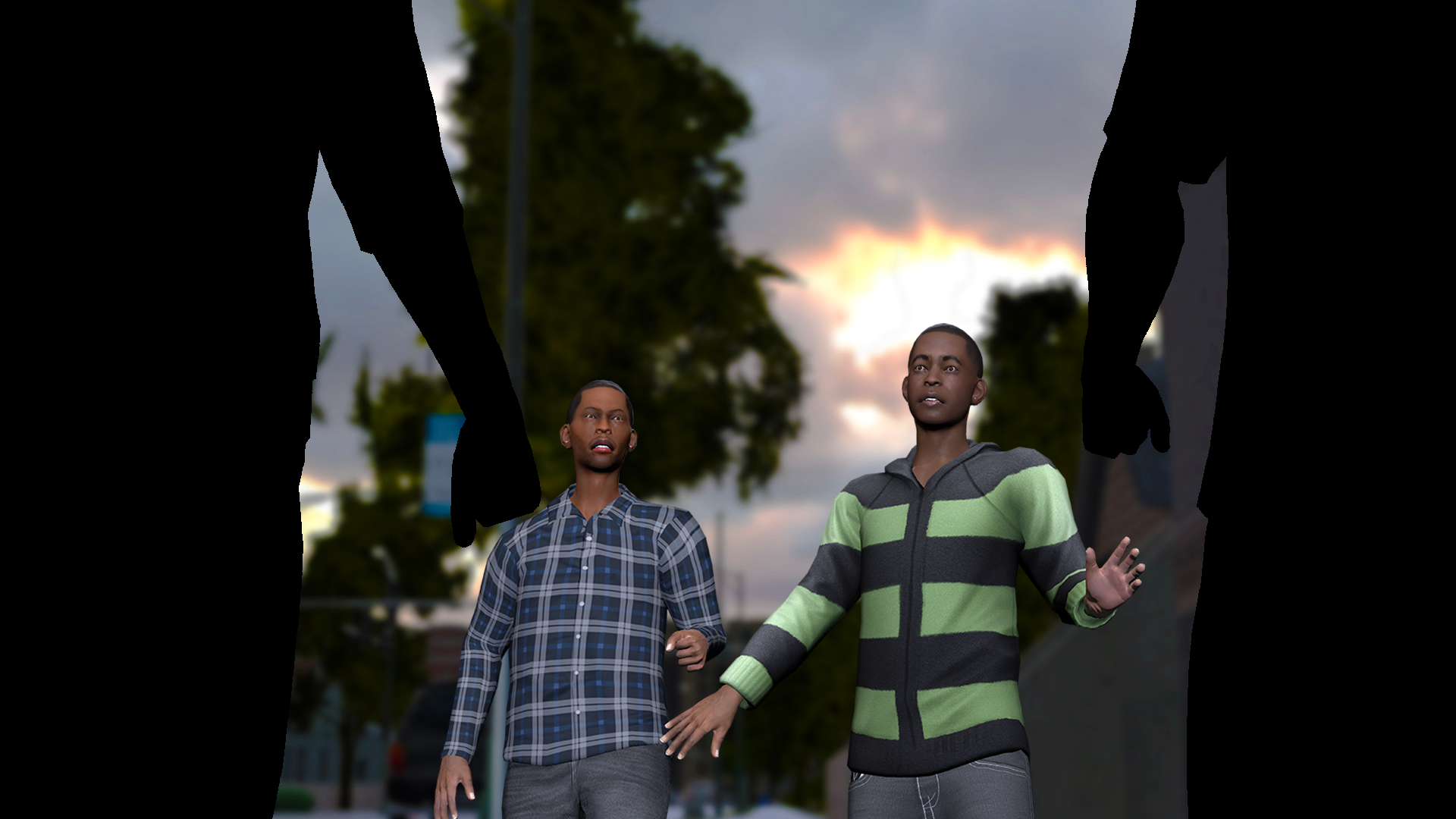The premise of Culture Shock Games’ We Are Chicago is unequivocally a necessary one, but its on-the-rails narrative method leaves little for the imagination and much more to be desired. The game tells the story of a black teenager, Aaron, growing up in the South Side of Chicago. Aaron often takes on the role of a parental figure for his younger sister Taylor, while working shifts to try and help his single mother. Gang violence looms large over the family, and the main objective of the game would seem to be to keep Aaron on the path toward college. The way the narrative unfolds, it is assumed that the dialogue options given to the player will influence Aaron’s journey through his adolescence, but We Are Chicago attempts to be a video game, documentary, and visual novel all at once without managing any of the genres’ best features well enough to tell Aaron’s story.

Starting with Aaron, there is mixed messaging as to who he really is, and as the player, you are left confused as to your role within the game. The entire game centers around you hearing a significant amount of exposition about the life of Aaron, his family, and the community around him. However, although everyone else has a voice, Aaron is only portrayed through text. Rather than immersing you into the narrative, this only creates a barrier to the immersion, wherein it is hard to feel like there is a blank slate to relate to given how personal and charged the embedded narrative is. Moreover, the narrative is trying to say so much about a topic that is seldom explored outside of poverty or gang stereotypes that it ends up not saying much at all. Indeed, Aaron’s own thoughts often sound more like a motivational poster than a well-rounded and complicated character. The stories coming from the South Side of Chicago should rightfully be more than narratives of misery, but We Are Chicago’s use of Aaron does not utilize the medium of a video game well enough to provide mechanics to match the intensity and complexity of its main focal point.

Similarly, the main threat of gang violence is not explored deeply or seriously enough through the medium of gameplay. It is fantastic that the game attempts to provide a more day-to-day snapshot of what living in an area influenced by gangs can be. Unlike the documentary or visual novel aspects that the game is going for, however, the violence becomes almost humorous. The graphics may be nostalgic for early Grand Theft Auto games, but beyond that, the lifeless world and glitchy execution of scenes undercut the violent and otherwise necessary scenes. Additionally, Aaron is supposed to be in danger of falling into historic habits of crime, but the dialogue mechanic never actually ends up posing any real narrative purpose. Even without thought-out action by the player, Aaron will end up in the same narrative point by the end of the game. For real students living in poverty, the risk is as real as We Are Chicago wanted to make its in-game conflict, but the utilization of cutscenes and lack of a big budget end up stunting any passion from the story.

If the dialogue is the only real feature of the game, it is unfortunate that it fails to capture the stories’ breadth and richness. There is no doubt that the idea of basing characters on real narratives from South Side residents is a draw for the game. However, the actual use of dialogue ends up making the characters’ bluntness edge towards cliche and one-dimensional. There is certainly the case that many people regardless of income level may flatten arguments and dismiss other experiences. Still, many characters don’t seem eager to speak on the nuances of why the youth of their community may not have the strongest morals or why gangs continue to be a draw to them. There is a conversation between Aaron and his friend that points to some nuanced outlook on gang members being more than just violent and evil, but for a game whose whole mission is set on educating non-Chicago residents on the everyday experiences of its residents, it does not deliver the storytelling that its real-life counterparts deserve. Of course, for an independent game, the scope of its ability to include socioeconomic history and complexity may be limited, yet We Are Chicago wears its authenticity as a key selling point. Luckily, the game leaves stories like it to be explored more deeply, and hopefully, its setbacks point future game developers towards ways to build words that enable the emergence of more stories of life in Chicago.



I love your commentary regarding narrative and how it could be reshaped to better help non-Chicago residents comprehend what systemic issues led us to where we are. I feel We Are Chicago was extremely close to hitting the mark, it’s just difficult to do so when surrounded by such a touchy environment that limits the amount of story that can be properly shared. Overall though, I like your review of the game separate of the narrative, and your writing flowed really nicely!
Yeah the fact that Aaron had no voice when his lines appeared took me out of the immersion and it felt difficult to relate. The game had a really powerful message but there were aspects (graphics, glitches, etc) that made it difficult to stay immersed.
I completely agree. Fundamentally, the game brings forth some very important themes and ideas. However, as you mentioned, the smaller budget really restricted the game’s ability to provide an immersive experience. I wonder if certain types of games are just impossible to make well on a small budget? Are there any low cost ways to improve We are Chicago? Perhaps someone with more game development experience might be able to answer this.
I agree, I wonder whether the issue is more a problem of scope rather than implementation. I think Braid executes well on its ability to convey a message about the dangers of reckless innovation without ethical concern. Instead of trying to capture a very broad concept with a multitude of nuances and complexities, Braid narrows its focus to examine the development of the atom bomb in particular. While the socioeconomic history of the South Side includes a lot of interconnected complexities, understandings of which is required to get the entire picture, perhaps it’s too much to ask for a single game to cover all of this in its entirety. For example, what would We Are Chicago look like if it narrowed its scope to focus just on Aaron’s relationship with her sister?
I agree that this game fails to capture the richness and depth of the story especially when it comes to the protagonist. I think Aaron’s narrative arc is interesting in the way he is supposed to be the “good guy” but it’s disappointing to see his character so limited by the lack of voice-overs and overall a closer look into his personal story. This makes it difficult to immerse the player into the game and I can definitely see it as a drawback to what this game was trying to achieve.